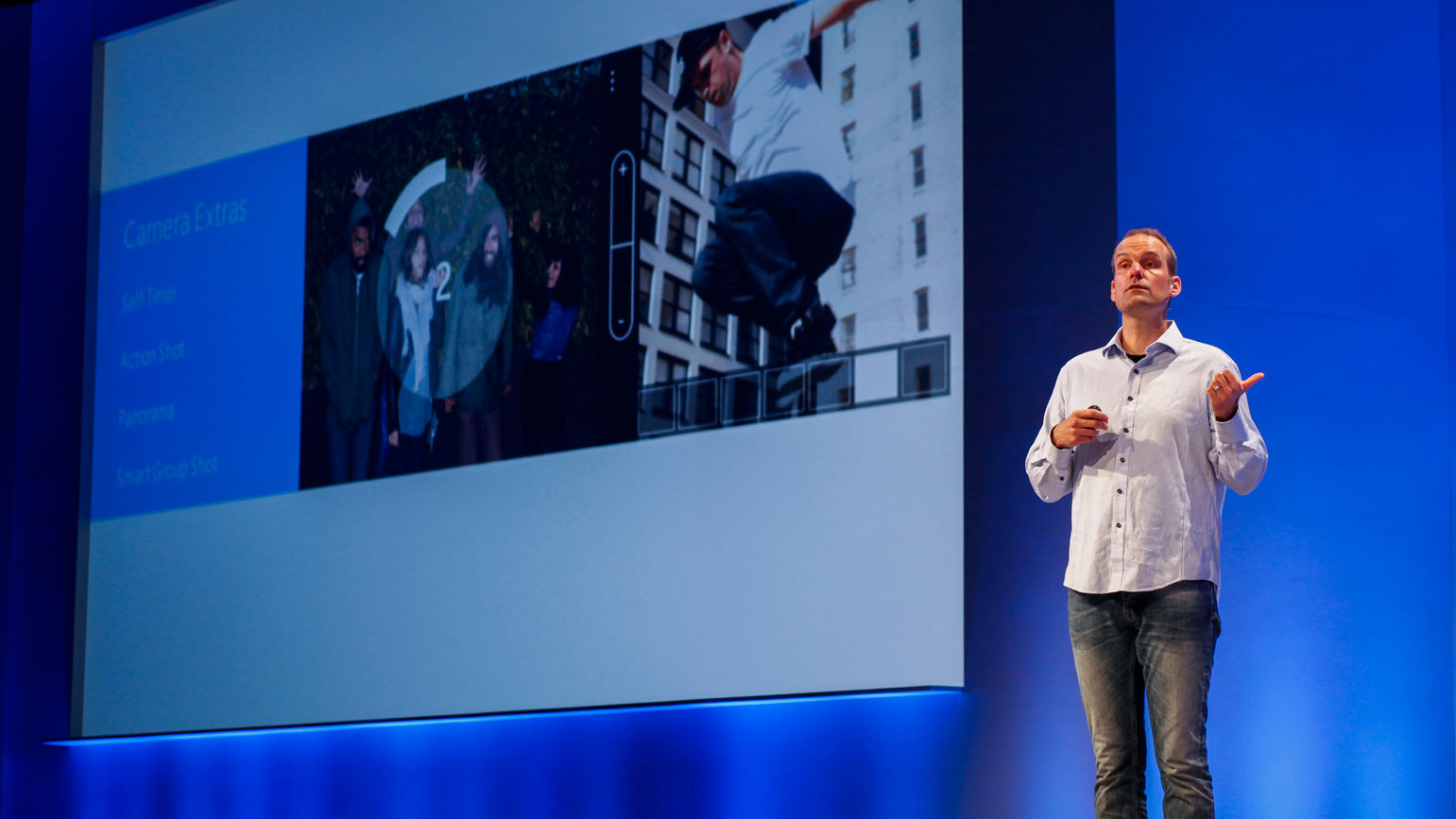Behind the Lumia: How Nokia designs its phones
Deliberately making it hard to choose between handsets

If you've ever found it hard to decide between two Nokia handsets because the cheaper model has some features you'd really like, that's deliberate Nokia executive vice president, Kevin Shields told TechRadar. Crazy? Shields thinks it makes perfect sense.
"As a consumer you have two good choices as opposed to there's a really good one and a sort of dumbed down one. At every price point we play in, we sort of want you when you walk in the store to not have price be your only decision.
"With the Lumia 610, we did a really delightful, beautiful colours and materials and design. Consumers picked that thing because it was cool looking even though it was a lot less expensive. We almost make you have to think 'Huh; that material they use in that phone is pretty cool; maybe I do want to get that one even though I can afford the more expensive one'. "
That means leaving the microSD slot out of the Lumia 920 leaves something for the Lumia 820, which also has the wireless charging option. And sometimes you have to suffer to look good; "we wanted to have an uncompromised physical form that generated a really beautiful device and if we put a microSD card in this thing it's just going to defile it."
Plus Shields says most users don't actually need extra storage. "Our research is showing us that consumers - especially with this phone - are streaming music, they're streaming video," Shields told us. "They aren't really using the storage they have anyway."
Taking out what people don't need
They don't need other high end features like HDMI out, because when you put them into handsets, they don't get used. "We know in software how often used and it's hardly ever activated. The industry is deeply guilty of innovation for the sake of innovation; it confuses things, consumers don't know what they are and are not supposed to care about.
"Let's just stop, let's do a few things that work really well for customer that are executed well and actually give them some really daily benefit."
Sign up for breaking news, reviews, opinion, top tech deals, and more.
So what new features are useful? Shields has a shopping list that sounds remarkably like the Lumia 920. "Take wireless charging; if we can get wireless charging to be ubiquitous this would be a real benefit. Optical image stabilisation; finally I can take a really good picture with my smartphone and not to feel I have to carry an SLR. A display that works great outdoors in bright sun and with gloves on.
"These are innovations that that are going to make your smartphone work better - and more usefully - for you in your normal life."
Ignoring features that sound good but don't get used also leaves more time for Nokia to solve technical problems like radio frequency interference. Moving the USB port to the bottom of the phone so it's easier to put it on a charging dock wasn't a trivial redesign. "This was a pain the in the rear end," Shields said with some feeling.
"It turns out that the micro USB port in phones is just an RF nightmare. The reason why you see it get put in these ridiculous places on phones is that there are antenna issues, they're trying to get it out of the way.
"The decision to put it where you want it on the bottom took some serious, serious engineering to do it and not end up with the antenna compromises. Having the headphone socket on the top is a little less difficult but it still has its own challenges. The point is to develop a really beautiful phone; don't screw with it."
Adding more radios
Building in wireless charging only adds to the problem, he points out. "Wireless charging effectively is radio; it's an antenna. Obviously NFC is too, then you got LTE, Wi-Fi, Bluetooth… suddenly you have a lot of antennas and it gets really challenging to make them all work well together."
Wireless power isn't only about convenience - although we're really looking forward to a feature we last saw on the HP TouchPad.
Because the Lumia 920 has NFC, it knows which wireless charging pad you've paired it with so you can set specific applications to load when you put your phone down on each base. Your Lumia can show the clock when it's by the bed and photos or appointments when it's on your desk at work.
But the next stage is doing away with wires and ports altogether. "What I'm looking forward to is the day you don't have to hard power at all," Shields told us. The day is coming that the power port and the USB port don't have to be there anymore. That day is a long way away, there's a lot of inertia built up. But once you get all those ports off there, interesting things start to happen."
If you can seal a phone completely it's less likely to be damaged by dust or water and you can use the space from the power connector for something else.
It's not that easy, Shields points out. "There is actually one hole left after that, the earpiece hole and the mike so it's not like it's completely sealed at that point. But we have ideas about that too."
Mary (Twitter, Google+, website) started her career at Future Publishing, saw the AOL meltdown first hand the first time around when she ran the AOL UK computing channel, and she's been a freelance tech writer for over a decade. She's used every version of Windows and Office released, and every smartphone too, but she's still looking for the perfect tablet. Yes, she really does have USB earrings.